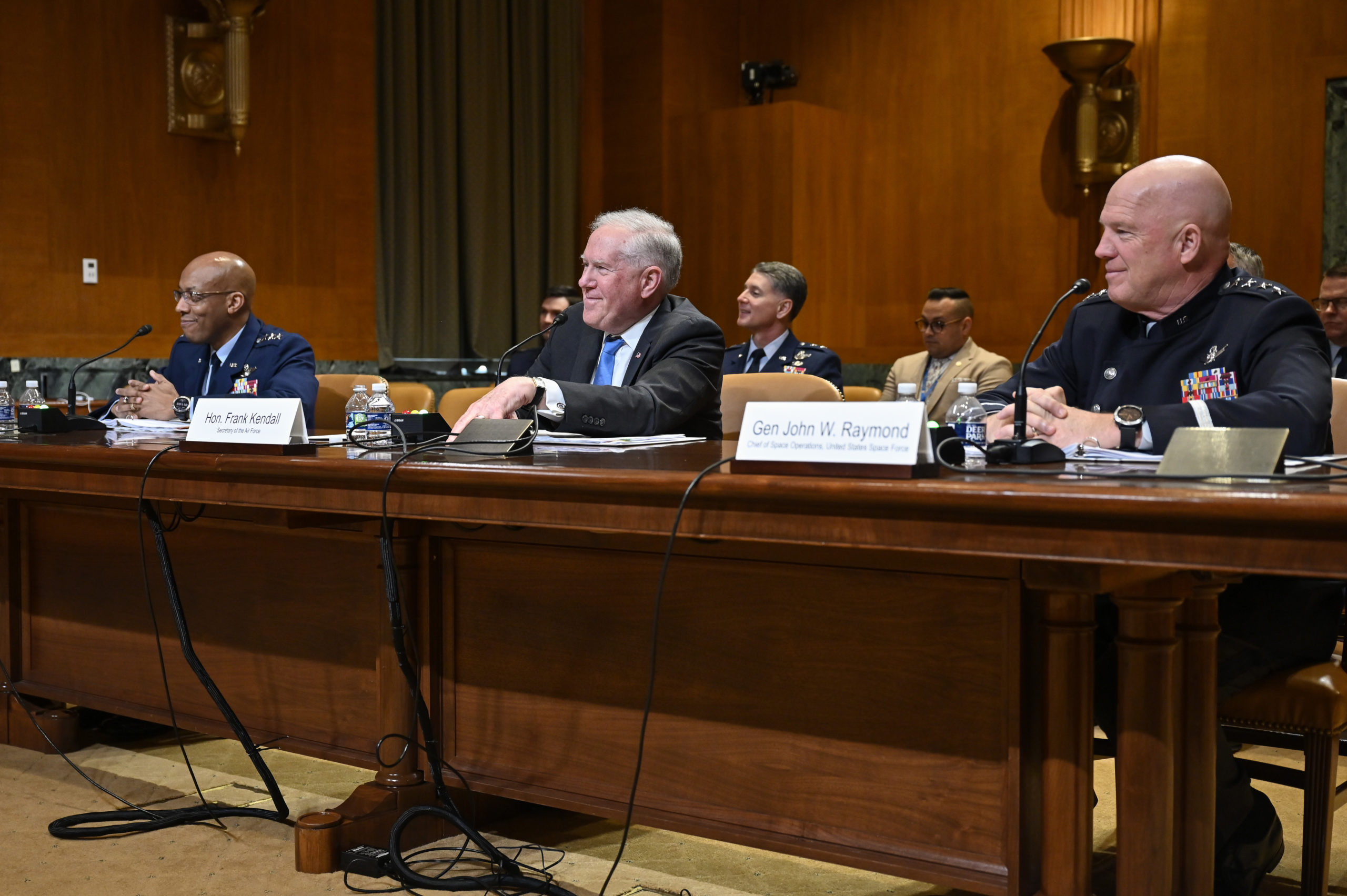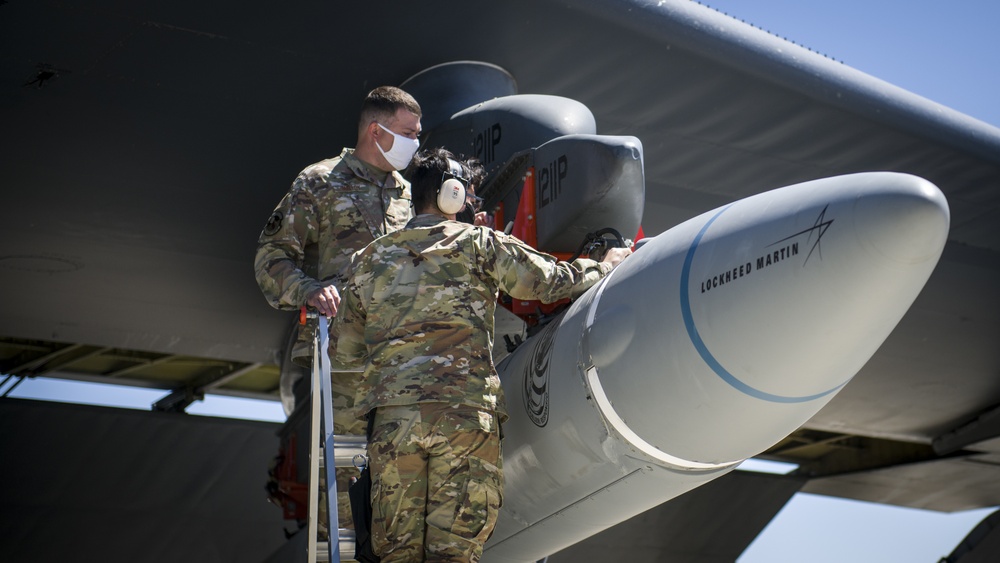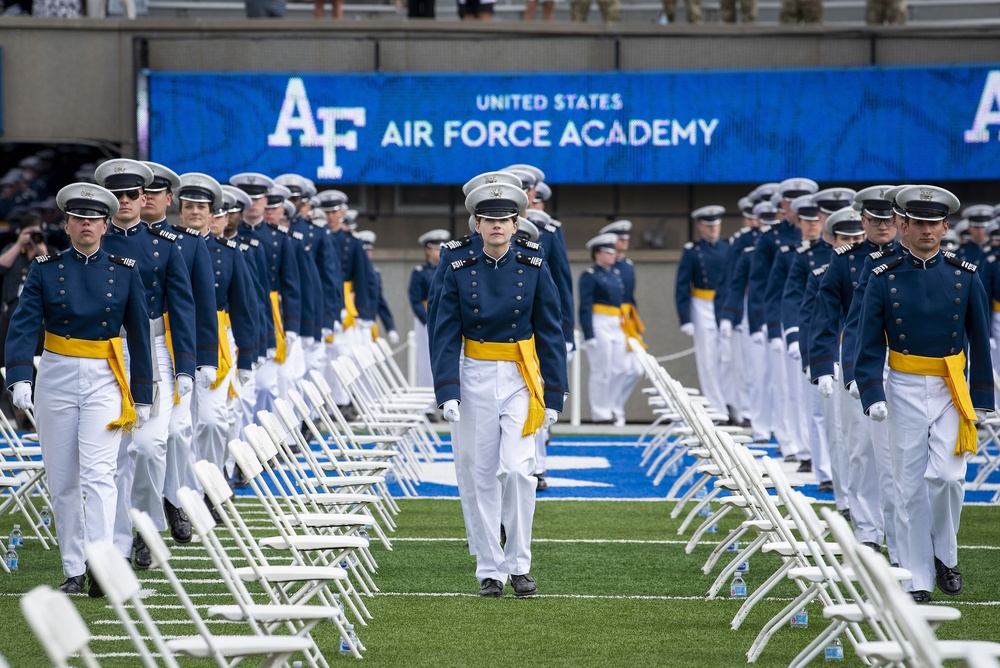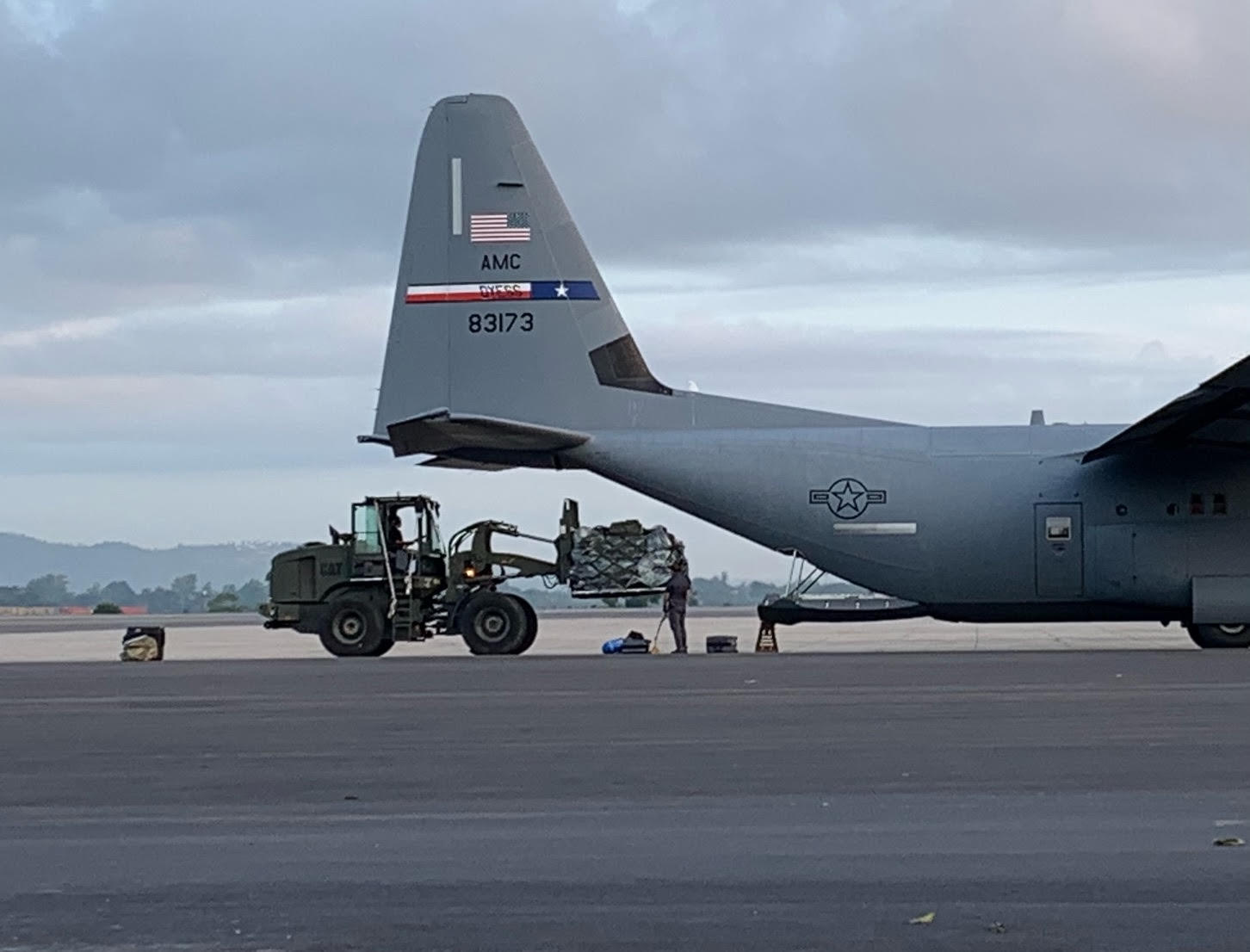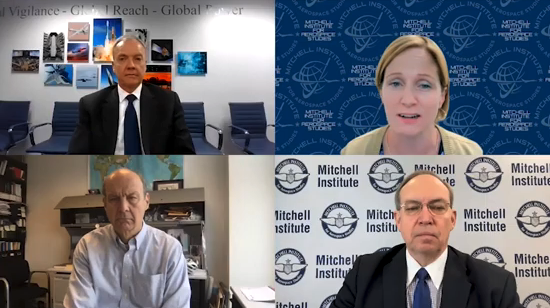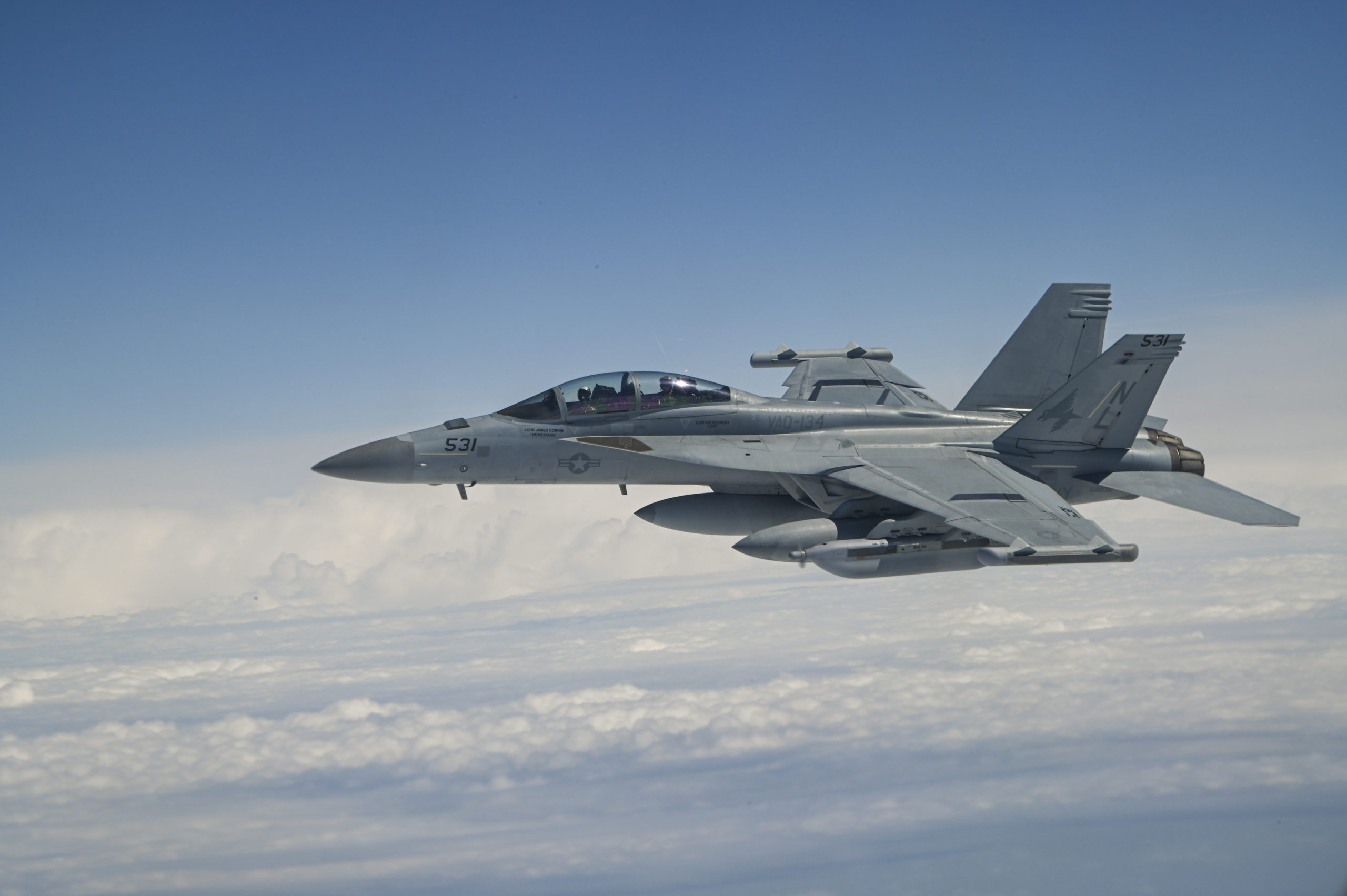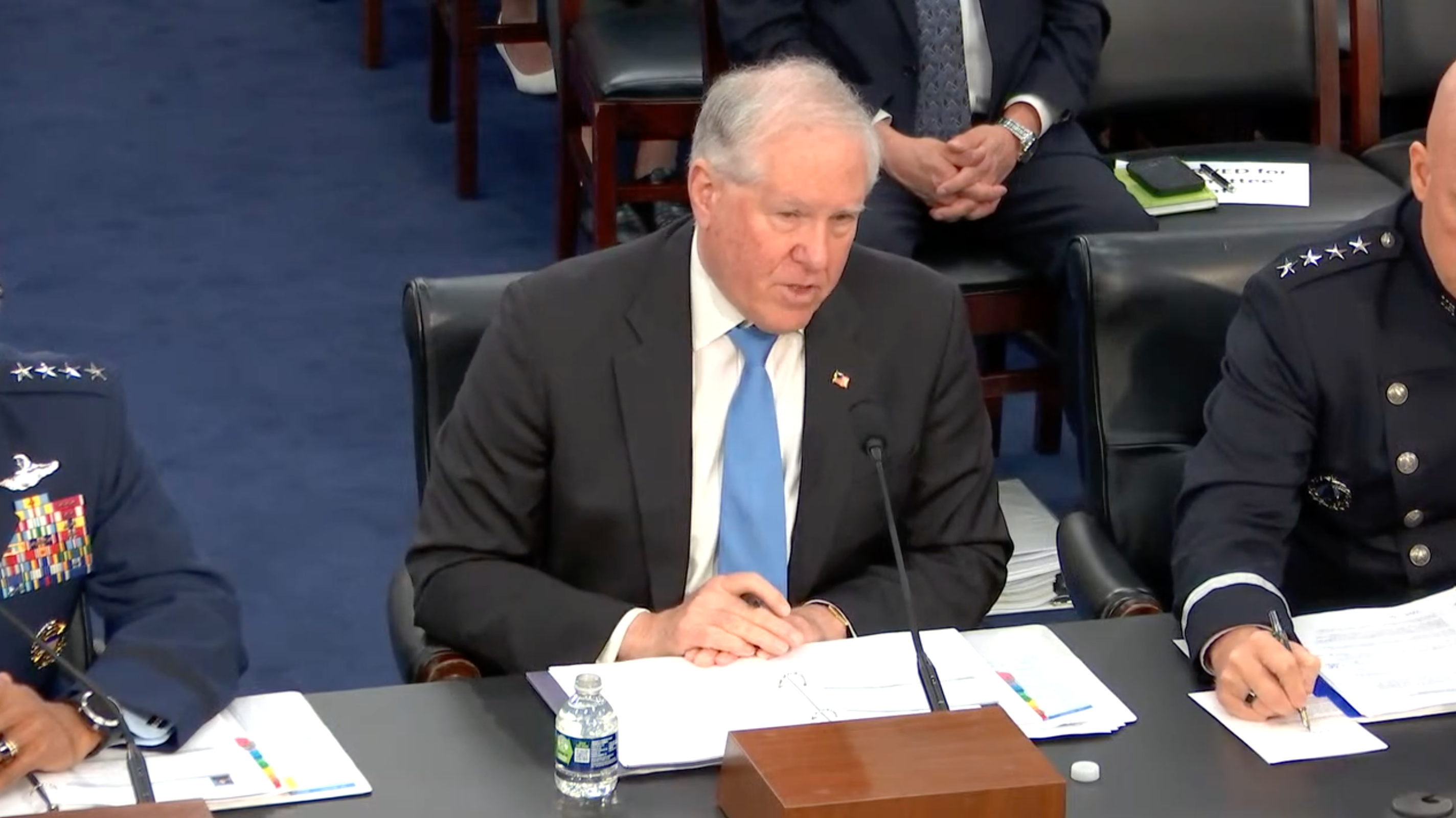Department of the Air Force leaders have not been shy in the past about voicing the issues caused by the use of continuing resolutions to fund the federal government.
But addressing the lawmakers responsible for passing an annual budget, Air Force Secretary Frank Kendall made the case May 17 that a CR in the upcoming 2023 fiscal year would have “a particularly negative effect,” especially when it comes to the issue that has dominated debate in Congress recently: inflation.
Testifying before the Senate Appropriations defense subcommittee, Kendall and Chief of Space Operations Gen. John W. “Jay” Raymond both took time in their opening statements to tout the need for a new budget before Oct. 1, when the new fiscal year begins.
“We … request the committee’s leadership and support in avoiding a continuing resolution, which would seriously compound any issues we have with inflation,” Kendall said.
Asked by committee chair Sen. Jon Tester (D-Mont.) to clarify, Kendall explained that operating under a CR, which keeps spending levels frozen at the previous year’s level, would limit the Defense Department’s ability to adjust for the impacts of inflation, which has surged in recent months and already led DOD officials to acknowledge that their 2023 request was built off an assumed inflation rate that has thus far proven inaccurate.
“The thing that’s unique about this year is that inflation is occurring and is somewhat unpredictable, and a CR locks you into a previous year’s level of funding when prices are increasing. So you need to get to a point where you can make some adjustments because of that,” Kendall said.
“We want to work with the Congress. We did include some inflation assumptions in our budget submission, but there is a reasonable possibility that inflation will be a bit higher than that. And we want to be able to work with the committee and the Congress to make some adjustments as we understand what FY 23 actually is. We don’t want to speculate right now what that will be, but we do want to deal with it when the time comes. A CR would make that even more difficult.”
Kendall’s assurances about working with Congress on the inflation issue echo those made by DOD comptroller Michael J. McCord, who pledged to lawmakers in April that the department would reassess and come back to Congress with updated numbers in the months ahead.
Such an approach, however, would be stymied by a CR, and despite Pentagon officials repeatedly bemoaning their impacts, CRs are more often than not needed to keep the government open, as Congress has passed one every year since 1997. This past year, Congress didn’t pass a budget until March—more than five months into the fiscal year.
But it’s not just inflation that looms as a pressing concern if CRs are used in 2023, both Kendall and Raymond said.
For one, the Space Force is projected to receive a major budget boost in 2023—its request represents a 36 percent bump over 2022. Any CR would delay those funds, deferring the service’s growth.
“The Space Force has … been charged to ensure our nation has enduring advantages and security in a new and rapidly changing warfighting domain. With your continued support, and an on-time appropriations bill, Guardians will deliver,” Raymond said in his opening statement.
And for the Air Force, a CR could also delay the service’s ability to procure badly needed new capabilities such as the E-7 Wedgetail. The Air Force has asked to divest a large portion of its aging E-3 Sentry fleet and replace them with Wedgetails, with delivery starting in 2027, but lawmakers have expressed concern about the “gap” in ISR capabilities that will result.
Staring down that four-year wait until the Wedgetail is ready, the Air Force is “looking at ways to try to accelerate that process, and we’re trying to be as creative about that as we can be,” Kendall said. But with the E-7 being a new start for the service, a CR would prolong the process.
“A continuing resolution will be a problem for us in terms of getting that going, so if we could do something to avoid that issue, and to accelerate getting those funds on contract, that would be very helpful,” Kendall said.
